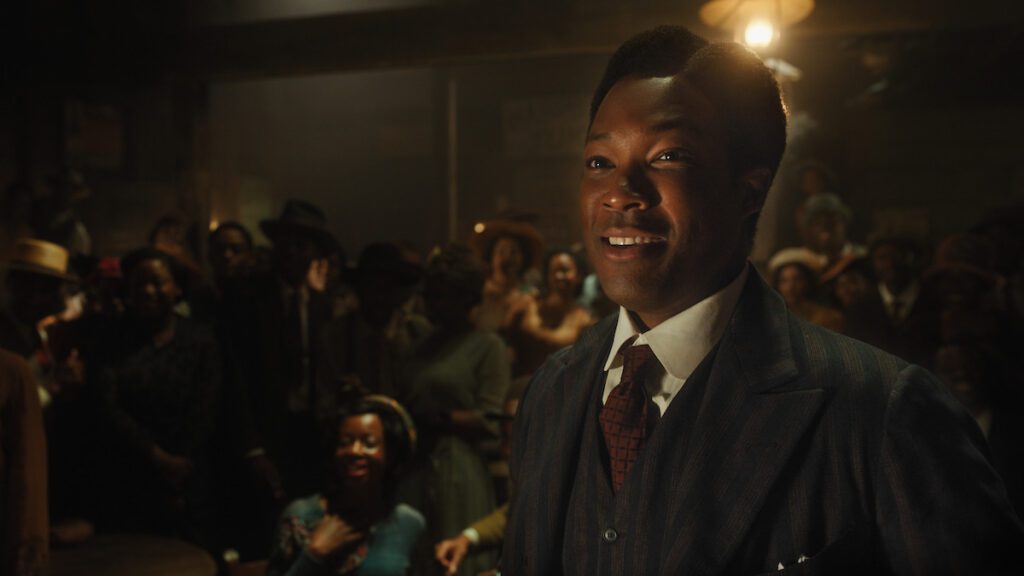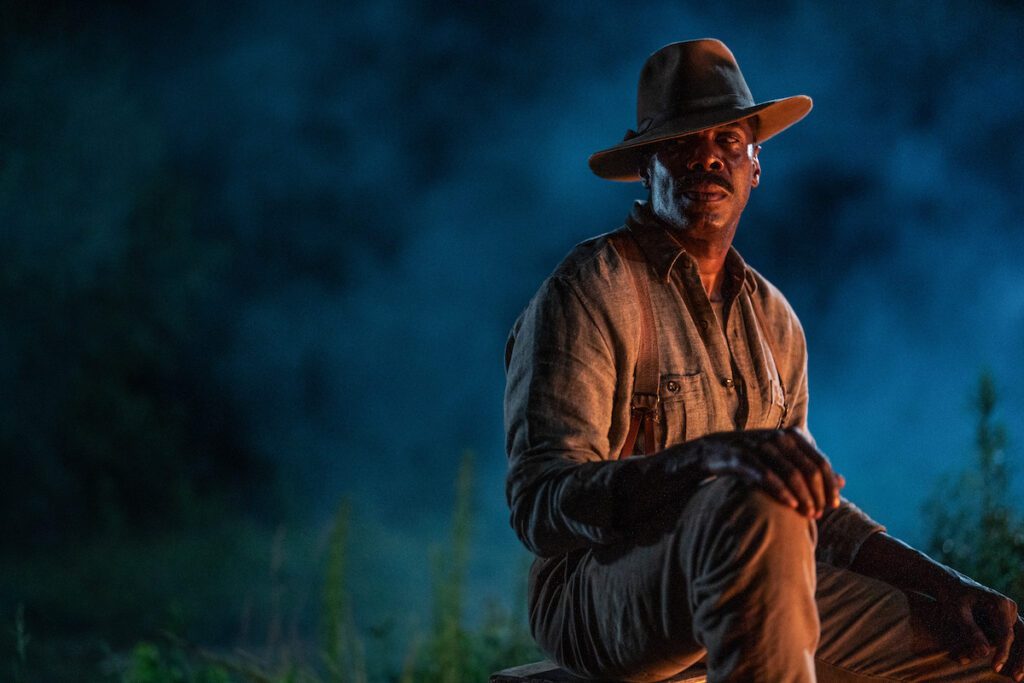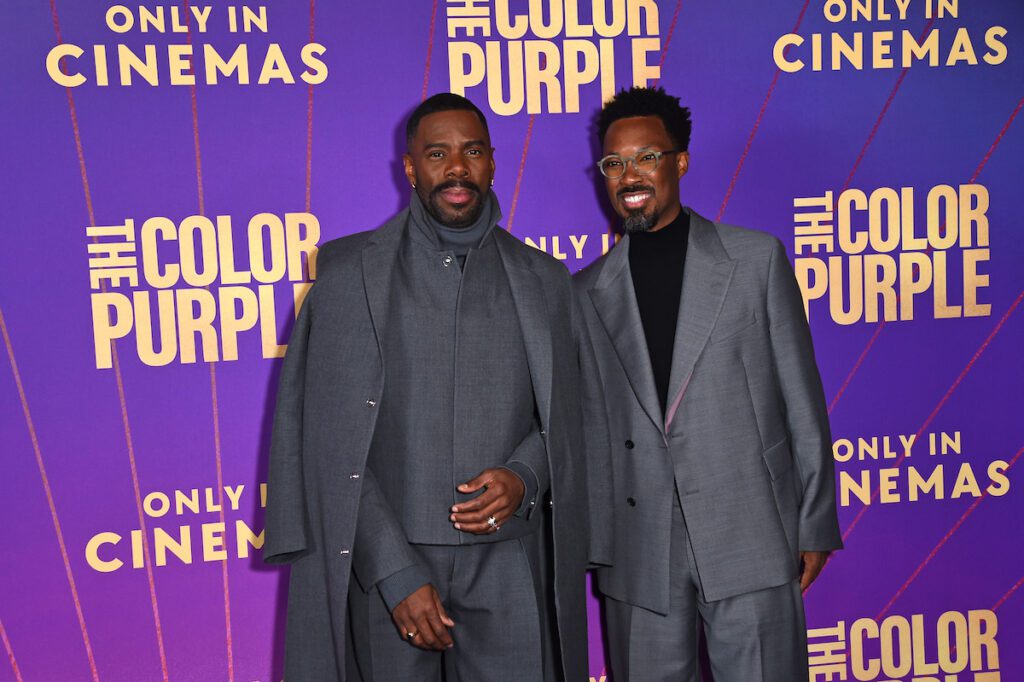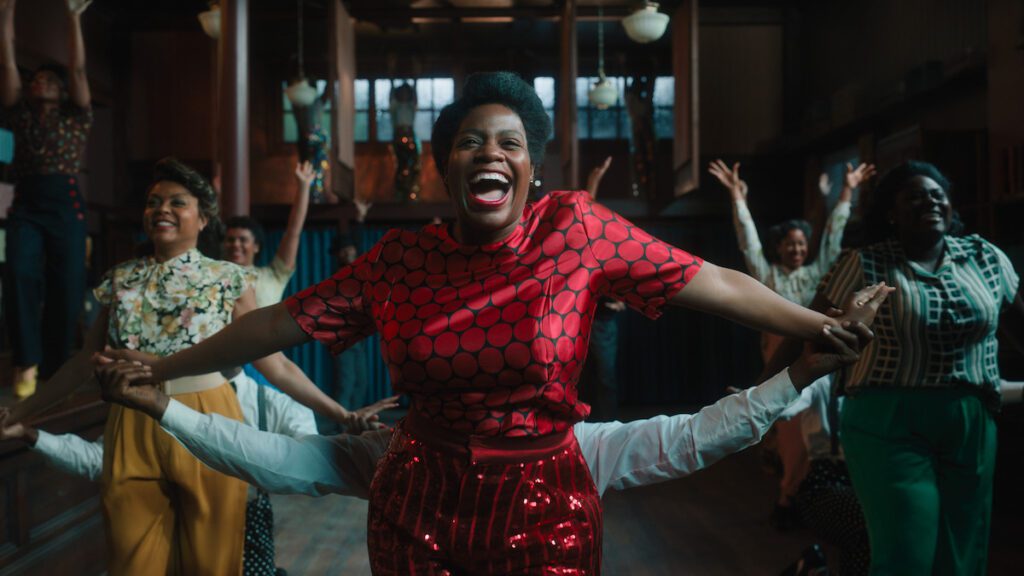Have you checked out The Color Purple yet?
Source: Courtesy / Warner Bros. Pictures
GlobalGrind Sr. Content Director Janeé Bolden sat down with Colman Domingo and Corey Hawkins, who play Mister and Harpo in Warner Bros. new musical version of The Color Purple. The actors discussed how this version of the film offers the opportunity for healing while shining a light on generational trauma, toxic masculinity and the way Black men treat Black women.
Colman Domingo spoke about how his character Mister is inspired by his son Harpo. Mister spends decades abusing Celie, before eventually, thanks to Celie’s departure and Harpo’s more progressive approach to relationships, Mister begins to see the light of day.
“As much as it’s about sisterhood, it’s about generational trauma, it’s about toxic masculinity,” Colman Domingo told GlobalGrind. “It’s about the effect these men have on these women… but help propel these women to make changes and evolve. We all have to evolve in some way shape or form. Some evolve slower. Harpo is the new generation and Mister is… just like living in this silo of what he believes being a man is or being a Black man [is] and also treating women like chattel. But yet there is something, he sees a spark in his son that is unique and I think whether he can articulate, I think he’s part of a generation of men who don’t have words for feelings or anything, but he admires his son. I think I think we found that, in the way we play it and there’s something about it that he wants to be more like him. But he doesn’t know how to break his own chains. Everything must fall apart for Mister for him to be reborn.”

Source: Courtesy / Warner Bros. Pictures
Corey Hawkins also addressed the generational trauma and healing that happens in the film.
“I think, especially when looking at Harpo, I don’t look at him as a victim of that cycle, because he truly is progressive in his thoughts,” Corey Hawkins added. “And I just kept being like ‘Where does that come from?’ Because it is learned trauma. It’s something that gets passed down and when you’re told a certain thing you start to believe it. But I think it’s the God in him and that’s the beautiful part about Alice Walker. And it’s also seeing that in Sofia. And also what his grandfather tells him, because there’s a thing about generational trauma and sometimes how it skips a generation. We all have that with our parents and grandparents, that dynamic. We just really tried to lay in that possibility of love and the absence of it and place somewhere in between.”
What we love most about the film is the healing that we were able to witness while watching. There’s a healing so profound that when we asked Domingo and Hawkins if it’s possible that the film might create a positive influence on our community, the answer was an emphatic YES.
“Absolutely,” Colman Domingo agreed. “I think that’s why, whether it’s the book or the musical or the film, which is why it resonates. We keep going back to it because it really is about all of our families and all of our stuff and we put all of our stuff is on display and we’re like, ‘Okay let’s deal with it . Let’s deal with all these interesting tricky relationships.’ It’s not shying away from anything. It deals with same-sex relationships, it deals with father/ son… and sisterhood. It’s really incredible so I love the fact that it’s laying it bare in a very raw and honest way. It invites you to say, ‘Who are you? And what is your capacity for love and for change, for healing?’”

Source: Ser Baffo / Warner Bros. Pictures
“I love that cause it’s there asking the hard questions right and it puts it in a film,” Corey Hawkins added. “That’s the powerful part about cinema, is that we get all these people get into a room, they sit down and they collectively get to have these feelings in a dark space where you can just you know share this singular moment, but it’s together and you get to ask those important questions and then you get to step out after the film is over you leave and you’re changed in some way.”
The Color Purple is in theatres now!







